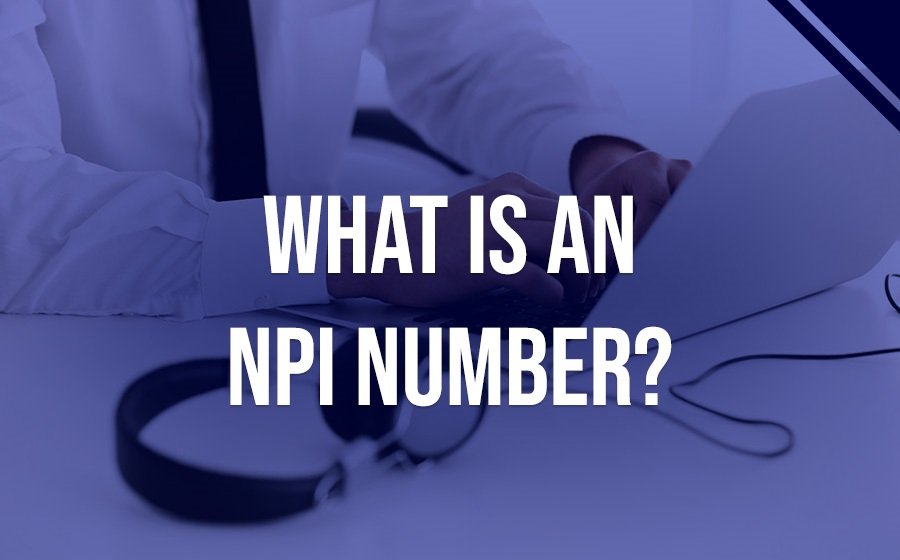In the ever-evolving landscape of healthcare administration in the United States, the National Provider Identifier (NPI) plays a critical role in streamlining communication, billing, and regulatory compliance. Whether you’re a healthcare provider, medical billing specialist, or simply curious about healthcare data, understanding the NPI number is essential.
This comprehensive guide will walk you through what an NPI number is, its purpose, how to apply for one, where to find it, and how it’s used in everyday healthcare operations. We’ll also address common questions to help you gain a better understanding of this important identification number.
1. What is an NPI Number?
An NPI (National Provider Identifier) number is a unique 10-digit identification number issued by the Centers for Medicare and Medicaid Services (CMS) to healthcare providers in the U.S. It is used in all HIPAA-compliant transactions and helps to identify healthcare professionals and organizations.
Introduced in 2007, the NPI replaced other legacy identifiers like UPINs, Medicaid Provider Numbers, and Medicare PINs.
2. Why is an NPI Number Important?
The NPI number:
- Standardizes healthcare identification
- Simplifies billing processes
- Prevents fraud and identity confusion
- Is required for Medicare/Medicaid enrollment
- Is mandatory for HIPAA-covered healthcare transactions
Having a unique identifier helps government agencies, insurers, and healthcare organizations streamline operations and ensure accurate record-keeping.
3. Who Needs an NPI Number?
NPI numbers are required for:
Individuals (Type 1)
- Physicians
- Dentists
- Chiropractors
- Therapists
- Nurse practitioners
Organizations (Type 2)
- Hospitals
- Clinics
- Labs
- Group practices
Even non-licensed providers involved in billing or records may need an NPI.
4. Types of NPI Numbers
There are two types of NPI numbers:
Type 1: Individual NPI
- For solo practitioners
- Assigned to one individual only
Type 2: Organizational NPI
- For businesses and entities (clinics, hospitals)
- Can have multiple subparts
5. How to Apply for an NPI Number
You can apply for an NPI online at the National Plan and Provider Enumeration System (NPPES) website:
- Visit https://nppes.cms.hhs.gov
- Create an account or log in
- Choose the correct provider type (Type 1 or 2)
- Fill in all necessary information
- Submit the application
Approval usually takes 1-5 business days.
6. How to Find an NPI Number
To look up an NPI number:
- Go to https://npiregistry.cms.hhs.gov
- Enter the provider’s name or organization
- View NPI number, address, and specialty
This is helpful for patients, insurance companies, and medical billers.
7. How is the NPI Number Used?
NPI numbers are used in:
- Electronic billing (e.g., CMS-1500 form)
- Health plan applications
- Referrals and authorizations
- Medical records
- Prescription writing
They ensure that the correct provider or facility is linked to services rendered.
8. NPI Number vs. Tax ID vs. Medicare ID
| Identifier | Purpose | Issued By |
|---|---|---|
| NPI Number | Unique provider ID | CMS |
| Tax ID (EIN/SSN) | Tax identification | IRS |
| Medicare ID | For Medicare billing only | CMS/Medicare |
Each identifier has a different role; NPI is solely for identifying providers in healthcare transactions.
9. Updating or Deactivating Your NPI
To update or deactivate:
- Login to NPPES
- Make changes to address, taxonomy, or contact info
- Submit a deactivation request if retiring or closing business
It’s important to keep details current to avoid claim denials.
10. Common NPI Mistakes to Avoid
- Using wrong NPI type (individual vs. organization)
- Sharing one NPI for group practice and individuals
- Not updating NPI after address or specialty changes
- Including NPI on claims before it’s activated
FAQs Related to NPI Numbers
Q1: Is an NPI number required for all providers?
Yes, anyone involved in HIPAA-covered transactions must have one.
Q2: Can a provider have more than one NPI?
Only organizations can have multiple NPIs for subparts. Individuals get one.
Q3: Does the NPI replace the license number?
No. It complements it but doesn’t replace state licenses.
Q4: How long is an NPI valid?
Indefinitely—unless you request deactivation.
Q5: Is there a fee for an NPI?
No, it’s completely free to apply and maintain.
Q6: What if I forgot my NPI number?
You can retrieve it using the NPI Registry or NPPES login.
Q7: How secure is my NPI info?
It is publicly available but should still be managed responsibly.
Final Thoughts
Understanding your NPI number is more than just a regulatory requirement—it’s an essential part of participating in today’s healthcare system. Whether you’re billing Medicare, joining a provider network, or simply maintaining your professional records, the NPI is your digital identity in the healthcare world.
By following this guide and keeping your NPI information up to date, you ensure smoother administrative processes, faster reimbursements, and better patient trust.
Know More: What is a Composite Number



There are actually a whole lot of details like that to take into consideration. That may be a nice level to carry up. I offer the thoughts above as common inspiration however clearly there are questions just like the one you convey up where an important thing can be working in honest good faith. I don?t know if best practices have emerged round things like that, but I’m positive that your job is clearly recognized as a good game. Each girls and boys really feel the impression of just a second’s pleasure, for the remainder of their lives.
Thank you for all of the efforts on this website. My niece loves participating in investigations and it is easy to understand why. A lot of people learn all regarding the powerful mode you present practical tactics via this website and in addition encourage participation from some others about this concept plus our favorite simple princess is in fact understanding a whole lot. Take pleasure in the rest of the year. You’re doing a fabulous job.
Thank you for every other informative website. The place else may just I am getting that type of info written in such an ideal method? I’ve a project that I am just now operating on, and I’ve been on the look out for such information.
I am not rattling fantastic with English but I find this very leisurely to understand.